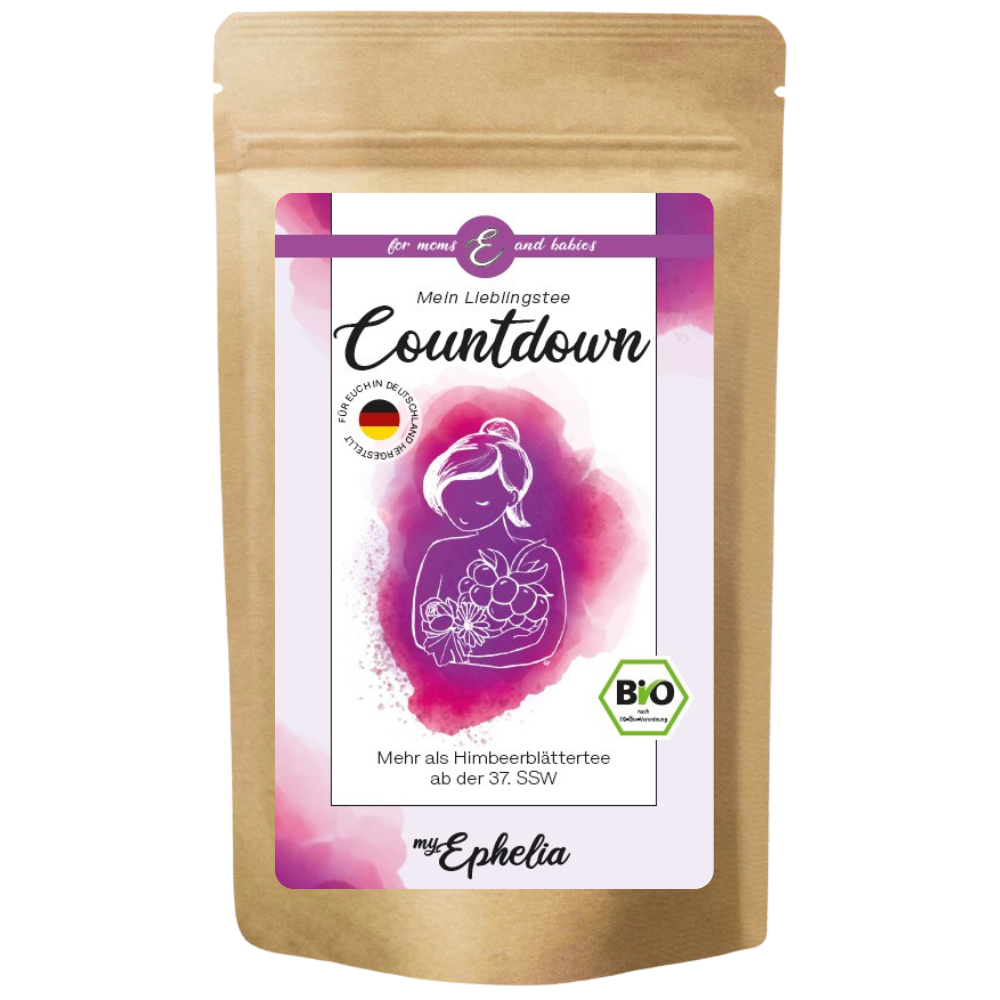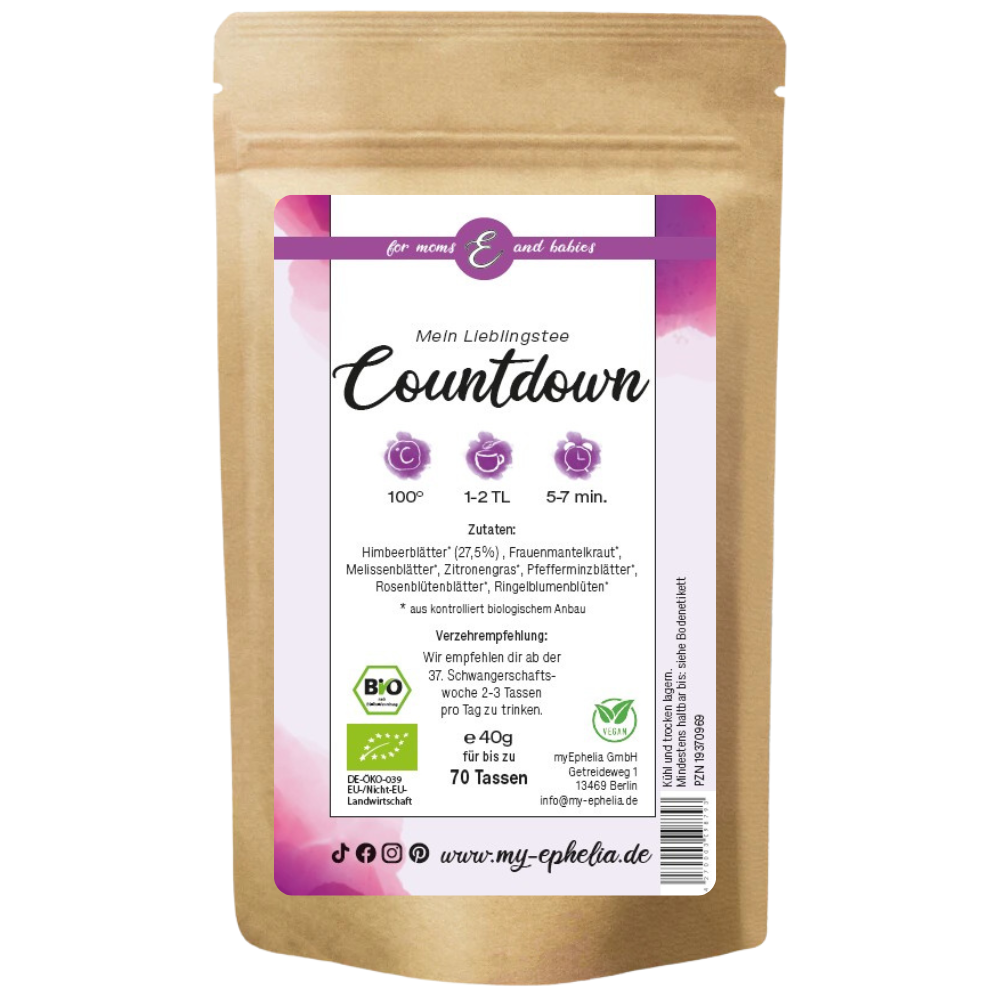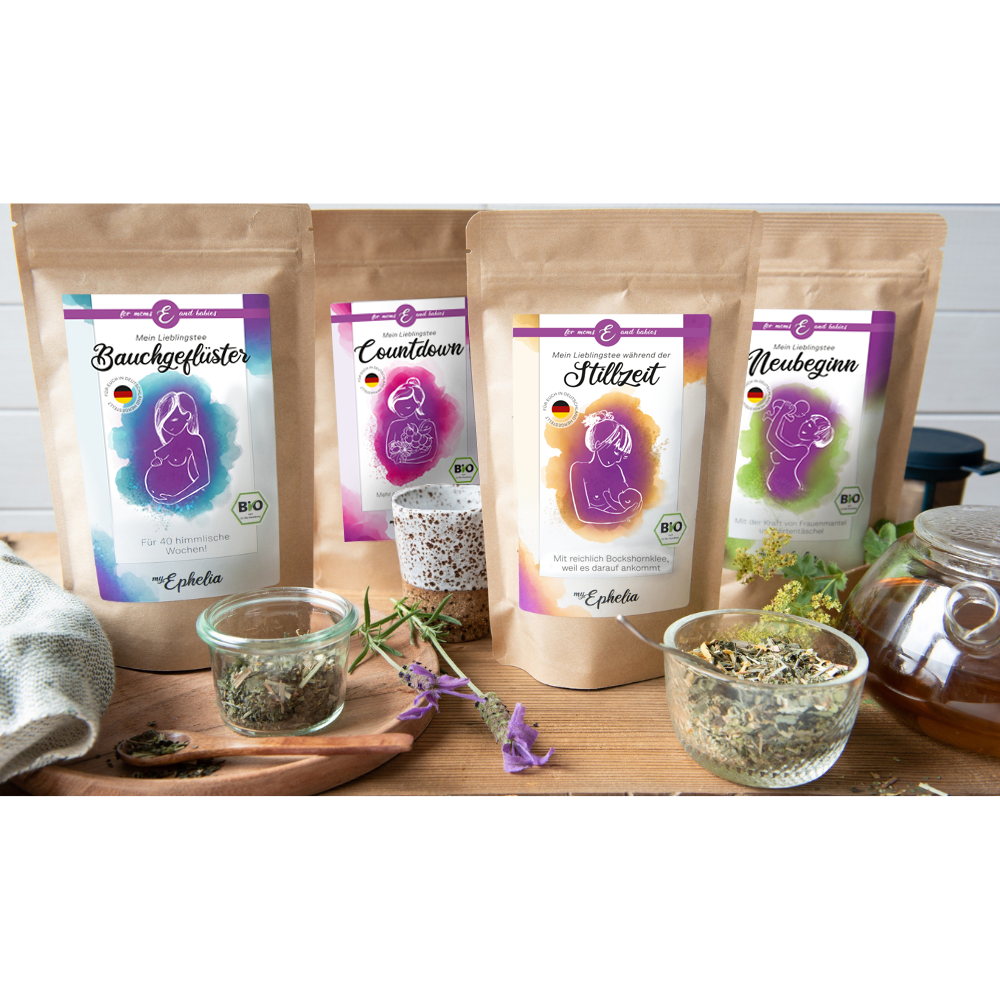myEphelia
My favorite tea when preparing for birth
My favorite tea when preparing for birth
Mit Liebe entwickelt – Unsere Teemischungen basieren auf sorgfältig ausgewählten Zutaten und wurden mit viel Erfahrung und Feingefühl für die besonderen Lebensphasen rund um Schwangerschaft, Geburt und Stillzeit komponiert. Geschmacklich fein abgestimmt, begleiten sie dich wohltuend durch diese besondere Zeit.
100 % Bio & frei von Zusätzen – Zertifizierte Bio-Kräuter, vegan, ohne Pestizide, Gluten, Koffein, Zucker, Aromen oder sonstige Zusatzstoffe – transparent deklariert, nichts als Natur.
Ergiebig & nachhaltig verpackt – In Deutschland gemischt, alufreie kompostierbare Beutel, großes Kräutervolumen für viele Tassen – spart Müll und Geld.
Couldn't load pickup availability
Zutaten
Zutaten
Raspberry leaves* Lady's mantle* Melissa leaves*, lemongrass*, peppermint leaves*, rose petals*, marigold petals*
*from controlled organic cultivation
Zubereitung
Zubereitung
For the ideal development of our teas, we recommend that you take 1-2 teaspoons per cup (200ml) and let the tea steep at 100*C for 5-7 minutes.
Then drink in peace and relax!
Recommended consumption:
We recommend that you drink 2-3 cups per day from the 37th week of pregnancy (SWE).
- developed by our midwife
- more than raspberry leaf tea
- Holistic blend with lady's mantle, lemon balm and rose
- from the 37th week of pregnancy
Share














